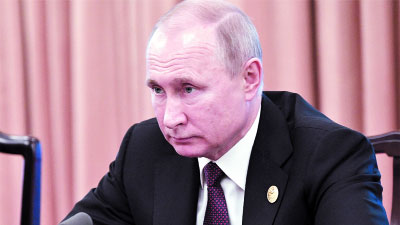Putin wants to isolate Russia’s internet from the rest of the world, much like China. This is not a good thing
Vladimir Putin is the archetypal strongman; his “muscular” presence has allowed a Post-Soviet Russia to punch way above its weight in global geopolitics. Of course, it helps when you have tens of thousands of nuclear warheads at your disposal. Now, Putin wants to emulate the Chinese and create a purely Russian internet. According to a law signed by the President, November onwards, it will be possible for Russian authorities to cut off access to the wider world-wide web in certain situations and thus create a purely domestic internet. A simple reason for Putin to do so is to prevent the spread of information or misinformation on Western social media networks that can be used to destabilise a state. Twitter and Facebook, as well as other public social networks, have become ‘enemies of the state’ in several countries, particularly quasi-dictatorships. Russia has even acted against one of its homegrown networks ‘Telegram,’ an extremely secure instant messaging service favoured by terrorists across the world.
This action of Russia has sent shivers not just in other countries but also among activists. Can Putin’s actions give ideas to the next Indian government? However, Putin has realised and so should Indian politicians that services like Twitter and Facebook are extensions of the United States’ foreign policy. They can very easily manipulate information flows and how they serve up that information to transform electoral results. This is why defence analyst Abhijit Iyer-Mitra has filed a suit against these companies in the Delhi High Court, as their actions can manipulate (and are, according to some evidence) Indian elections. So should we also go down the same path and have a purely ‘Indian’ internet? No. The beauty of the internet is that it has democratised information flows as well as how people react and talk with each other. That has to stay. However, governments are right and must be concerned about how the internet has encouraged and enabled coercive activities. While the Supreme Court did enshrine the right to privacy, it does not allow anyone to work against the state. India should remain part of the world-wide web but protect its own interests. It should force foreign companies to not only store their data here but explain their actions when it comes to blocking users and their algorithms since these can be weaponised against Indians.
Writer: Pioneer
Courtesy: The Pioneer








 OpinionExpress.In
OpinionExpress.In















Comments (0)